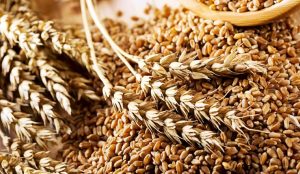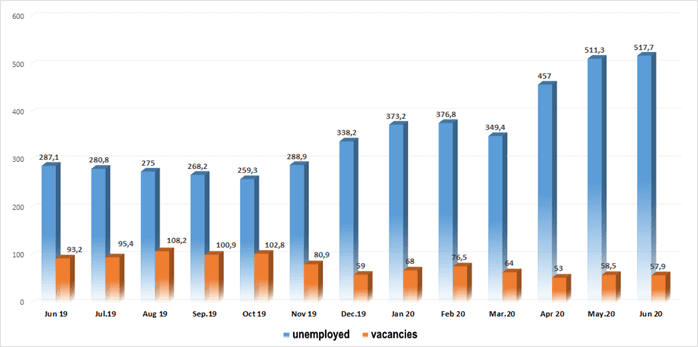
Since the beginning of the new 2020/2021 marketing year (MY, July-June) and as of August 19, 2020, Ukraine exported 5.1 million tonnes of grain and legumes, which is 1.26 million tonnes less (due to corn) than on this date in the past MY.
According to the information and analytical portal of the Ukrainian agro-industrial complex, 3.03 million tonnes of wheat, 1.56 million tonnes of barley and 502,000 tonnes of corn (1.18 million tonnes less) was exported to date.
As of August 19 of this year, 28,400 tonnes of flour was also exported.
As reported, in the 2019/2020 MY Ukraine exported a record 57.2 million tonnes of grain, legumes and flour, which is 13.5% more than in the previous MY.

The Infrastructure Ministry of Ukraine says that conditions must be created for active use of e-vehicles in Ukraine and necessary infrastructure must be developed.
“As of the end of July this year, around 23,000 e-vehicles and a bit more hybrid vehicles, which is around 46,000 vehicles, were registered in Ukraine,” the ministry’s press service quoted Infrastructure Minister Vladyslav Krykliy as saying on August 18.
According to the minister, the key to an increase in the number of e-vehicles in Ukraine is making their cost lower and infrastructure development.
“The National Transport Strategy for 2030 provides for the promotion of use of e-vehicles. We are planning to update some of its clauses soon, in particular the ones on the use of public electric transport. However, our key task is to create conditions for the production of e-vehicles in Ukraine,” Krykliy said.
He also said that the ministry supports the extension of VAT exemption for e-vehicle imports to Ukraine. It has also suggested and is actively participating the elaboration of the key amendments to the state building regulations regarding the construction of charging stations on roads.
“We want to change the state building regulations and ensure construction of charging stations on all public roads, and not only national ones,” the minister said.
In addition, the Infrastructure Ministry plans to ensure gradual replacement of public transport with electric vehicles, in particular via raising loans on favorable terms.
According to Krykliy, the government and the Verkhovna Rada should create conditions for active use of e-vehicles in Ukraine and development of necessary infrastructure.
The ministry also recalled that, according to the Interior Ministry of Ukraine, 3,385 e-vehicles were registered in Ukraine in H1, 2020, which is 16% more than over the same period in 2019.
National bank of Ukraine’s official rates as of 20/08/20

Source: National Bank of Ukraine
Number of unemployed in Ukraine and job opportunities, May 2019 – June 2020


Scandinavian airlines have resumed regular flights to Boryspil International Airport (Kyiv region).
The airport’s website said on Tuesday that the airline plans to operate flights from Boryspil International Airport to Oslo International Airport once a week on Tuesdays.
Scandinavian airlines is a multinational airline company, the leading carrier of the Scandinavian countries, based in Stockholm (Sweden), owned by SAS AB. Founding member is Star Alliance.